 We drove on through the Ngorang Ngora highlands and into the Savannah, where the great animal migration was gathering steam. We encountered thousands of herbivores from the gigantic giraffe to the diminutive diki diki, the ubiquitous gnu, the spectacular zebra, six types of antelopes and dozens of predators from the mighty Simba the Lion, the sinuous Chuhi, the leopard, the slinky hyenas and the jackals. Soumya recounts his recent travel to the African jungles, replete with wry humour, in the weekly column. A Different Truths exclusive.
We drove on through the Ngorang Ngora highlands and into the Savannah, where the great animal migration was gathering steam. We encountered thousands of herbivores from the gigantic giraffe to the diminutive diki diki, the ubiquitous gnu, the spectacular zebra, six types of antelopes and dozens of predators from the mighty Simba the Lion, the sinuous Chuhi, the leopard, the slinky hyenas and the jackals. Soumya recounts his recent travel to the African jungles, replete with wry humour, in the weekly column. A Different Truths exclusive.
Serengeti, a Masai word meaning endless grasslands, was a place that had called out to me since childhood and having seen the films Hatari and African Safari and read the book, Mountain of the Moon. This had been reinforced by the National Geographic visuals of the great animal migration from Serengeti in Tanzania to Masai Mara in Kenya and the journey back. At long last, my dream was about to come true as we had booked a flight on Rwanda Airlines to Kigali, across the border from Tanzania and then a small plane to Arusha, the nearest airport to Serengeti.
However, travelling in Africa is never that simple. We learnt in Rwanda that the flight had been cancelled and we were offered visa and hospitality in that country with the hope of a flight next day. We firmly declined and was given an option of flying to Nairobi in Kenya and try to catch another small plane to our destination. Desperate, we took that. After a great deal of tension at Nairobi, where my name had been disappeared from their records, we finally got a flight to Kilimanjaro and drove to our destination from there with a night halt at Lake Myanara.
Our first welcome to Africa was at the wildlife lodge at Myanara when a troop of baboons (incidentally a group of baboons is called a Congress, but to avoid being mistaken for a political piece, I will refrain from calling them by their rightful name) invaded our room and grabbed the snacks and toiletry and started inspecting our luggage. Baboons being larger than dogs, with ferocious faces and huge canines gave us the fright of our lives and I had to reluctantly play the macho male and try to shoo them out. They did leave only to enter our children’s room by sliding open the glass windows. Now my daughters joined the fray and proved that the young ladies of today are more than a match for the most aggressive African Ape. Perhaps averting unwanted attention from the Indian male is sufficient training.
The baboons left, and we felt that our children’s clothes were arranged better for their attention. They also discarded the sunscreen lotion purloined from the room but ate up the biscuits and chocolates while posing for photographs. We realised that we are in Africa.
That day, we drove on through the Ngorang Ngora highlands and into the Savannah, where the great animal migration was gathering steam.
We encountered thousands of herbivores from the gigantic giraffe to the diminutive diki diki, the 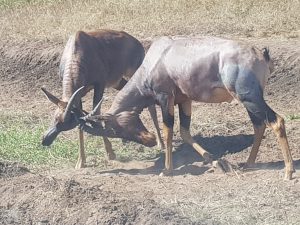 ubiquitous gnu, the spectacular zebra, six types of antelopes and dozens of predators from the mighty Simba the Lion, the sinuous Chuhi, the leopard, the slinky hyenas and the jackals, which followed this bonanza of meat on the hoof.
ubiquitous gnu, the spectacular zebra, six types of antelopes and dozens of predators from the mighty Simba the Lion, the sinuous Chuhi, the leopard, the slinky hyenas and the jackals, which followed this bonanza of meat on the hoof.
But that story will be told by and by. I will complete the story by speaking about our journey back. On the way back, we were flying from Kilimanjaro to Mumbai via Rwanda. However, we discovered to our horror that during the earlier rescheduling, the tickets to Mumbai had been cancelled and once more we were fated to be guests of Rwanda. Many protests and display of the original tickets later, they did issue us fresh tickets to Mumbai but told us to get the Boarding Pass at Rwanda.
On arrival at Kigali in Rwanda, we were told that our flight for Mumbai had left the previous day. The mystery was solved when we realised that the fresh tickets were booked on Kilimanjaro late night on the previous day but we arrived in Rwanda around midnight when the date had changed. On explaining the physical difficulty of leaving Rwanda before arriving there, they offered a solution – another flight to Mumbai via Uganda.
African airlines are a Kafkaesque world. Where when and how a flight would go is a matter of chance. And whether your name figures on it or only some of the names in the group is anybody’s guess. Boarding tickets to destination x does not ensure that you board or that you go to that destination. And the time is completely fluid. Various officials involved have various opinions and none agree with what’s displayed on the board or mentioned in the tickets. You learn fatalism in Africa. I have seen four countries for the price of one – even if it were only the airports. Now, waiting patiently to see where they will take us next and when.
We are finally back in India with indelible memories of Africa and forgettable memories of their airlines.
©Soumya Mukherjee
Photos from the author
#Travel #TravellingAfrica #AfricanTour #WhyPigsHaveWings #Humour #TravelAndGetaway #DifferentTruths

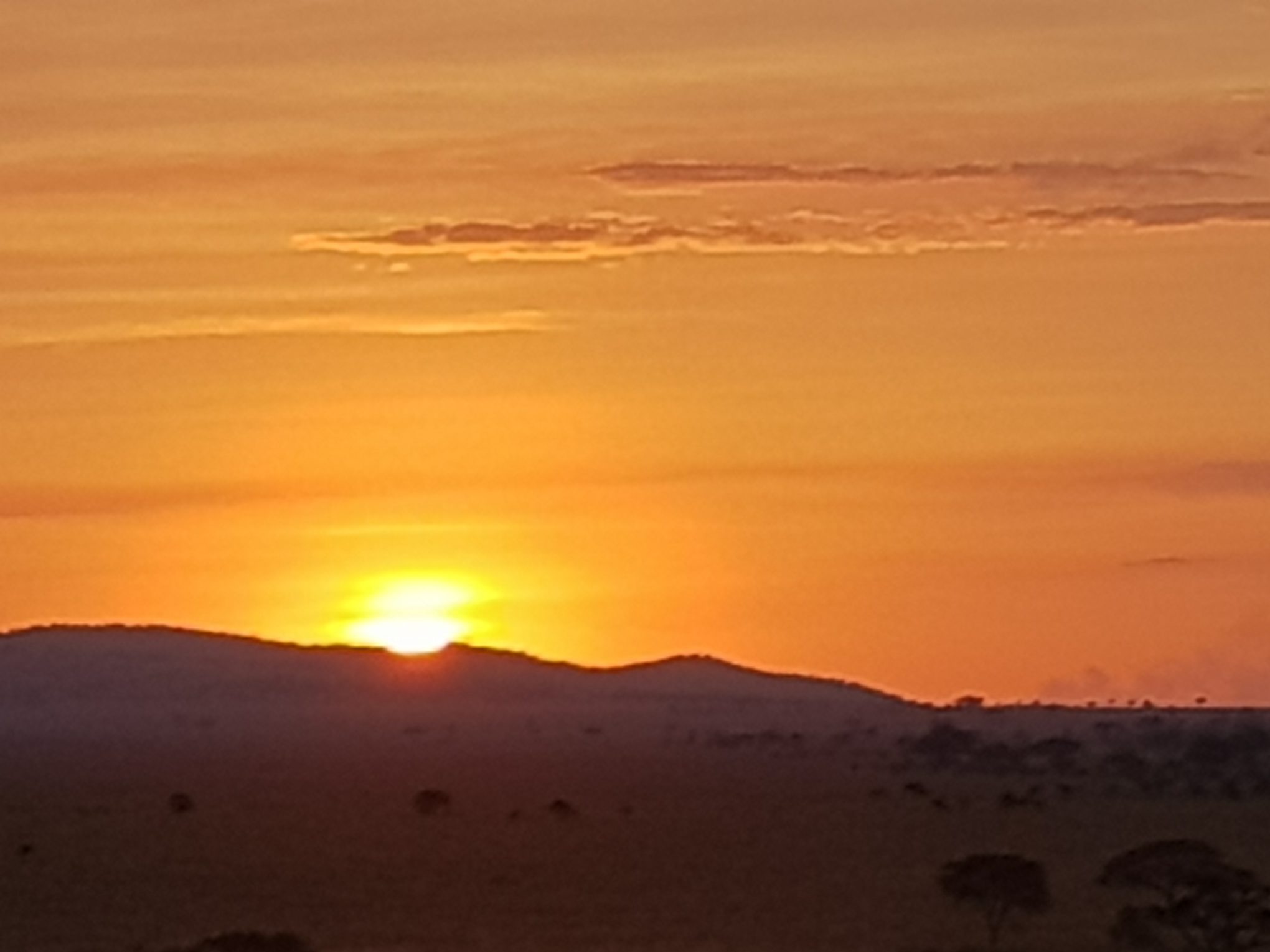
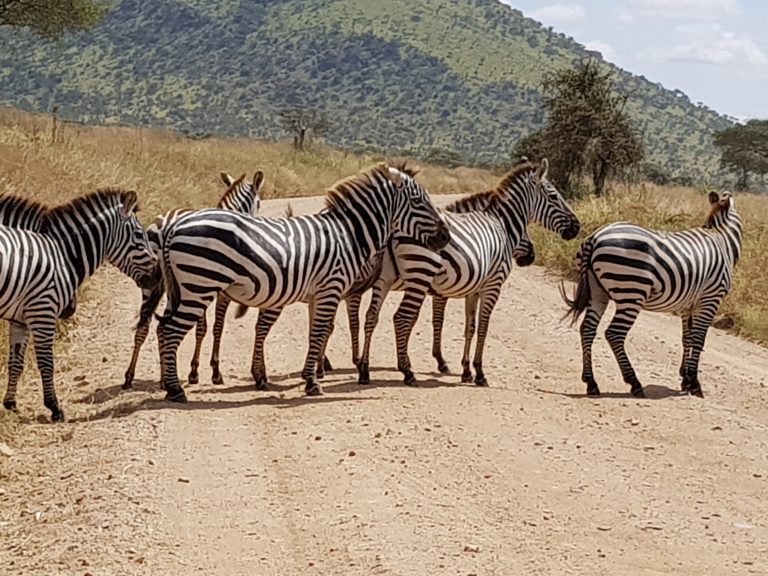
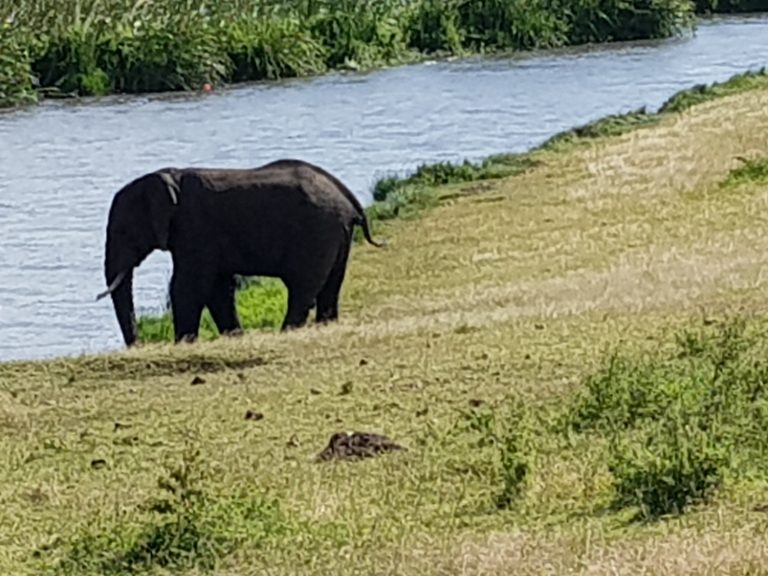
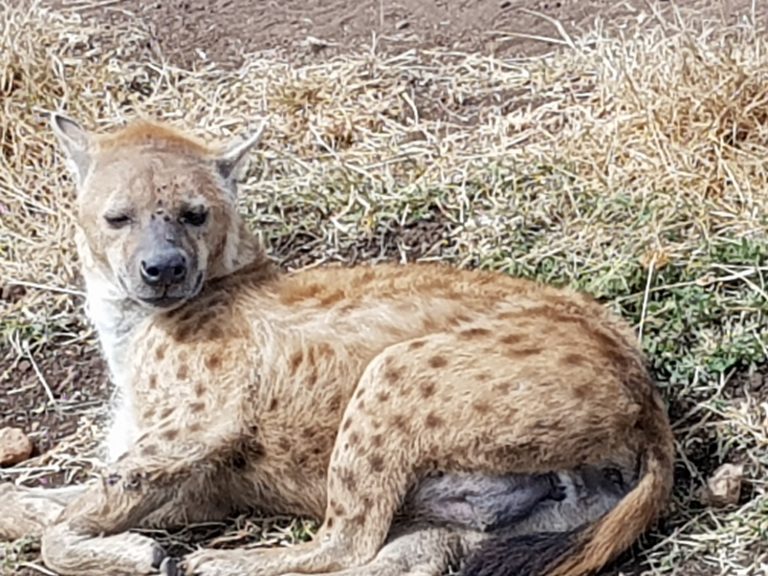
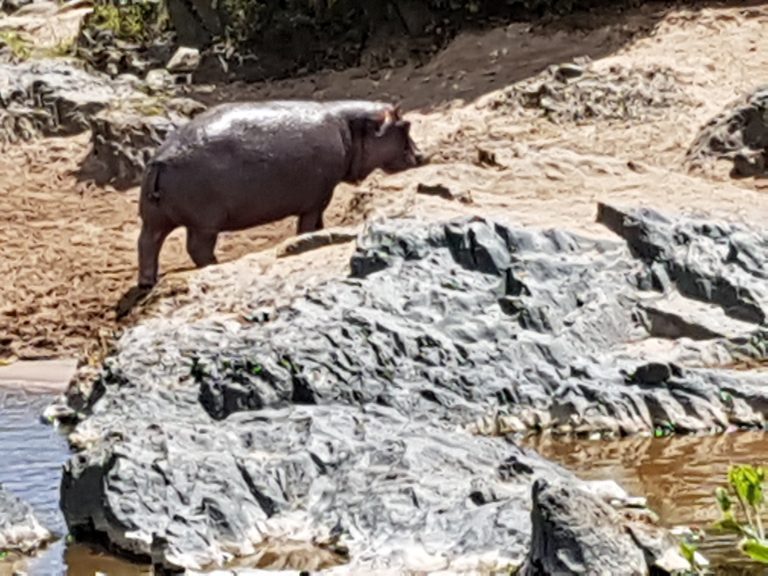




 By
By

 By
By